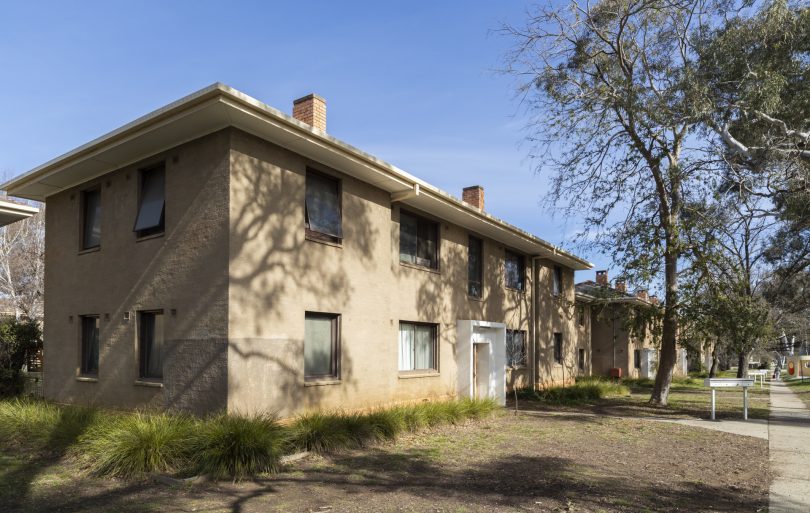
After a damning inquiry into the community sector concluded that services are underfunded and proivers are consistently quoting below cost, leaders now say fixing housing is essential. Photo: Michelle Kroll.
For many working in the community housing sector, the damning Counting the Costs report contained no surprises. Instead, it confirmed the sector is not only chronically underfunded, but services repeatedly price services below cost when tendering for government contracts for fear of missing out.
Two leaders in the sector have now pointed to the Territory’s housing and homelessness problem as an area that must be prioritised for future funding for fear it will cause other issues to spiral out of control.
Woden Community Service (WCS) CEO Jenny Kitchin puts it simply: “It bleeds across all areas. If you cannot house people, then a whole lot of other things – such as child protection, substance abuse and alcohol and drug abuse – all fall out of that.
“If we don’t address this now, it can only get worse,” Ms Kitchin said.
WCS operates OneLink, a centralised housing intake service, as well as a Supported Tenancy Service. Both have recorded consistent increases in the number of people seeking assistance throughout the pandemic.
“There is no doubt that the increased demand for housing is a chronic problem,” Ms Kitchin said.
For the CEO of the ACT’s independent peak community organisation ACT Shelter, Travis Gilbert, this is something he often hears from their members, who are generally tenants and housing members.
In fact, he’s recently been made aware of a push for doctors, nurses and healthcare professionals to join a ‘housing for health’ lobby group.
“It does show that even among clinicians, there’s a sense that housing is fundamental,” Mr Gilbert explained. “It’s really challenging from a health perspective, for example, if they have to discharge people from the adult mental unit or Canberra Hospital into homelessness.”
He’s especially concerned by another issue raised in the report – an unsustainable workload leading to high rates of staff burnout.
“In the community sector, the goodwill of staff is often exploited, and there’s a lot of unpaid overtime,” Mr Gilbert noted.
“I have significant concerns about the risk of the level of burnout to workers across the board, especially in the housing space, and I think there’s a need to consider a ‘floor price’, for want of a better term, for the delivery of services.”
The ACT Government has taken steps to address the funding shortfall. In the last budget, it committed $26 million to the community sector package, which included an $8.6 million funding boost for homelessness services.
Minister for Homelessness and Housing Services Rebecca Vassarotti said this funding injection would raise the base funding rate of the homelessness organisations by 12.7 per cent.
“This base funding rate has not increased over approximately the past nine years, so this is a significant commitment to help the sector deliver early intervention crisis support and improve outcomes for people at risk of or experiencing homelessness,” Ms Vassarotti said.
An extra $100 million was also allocated to public housing in the last budget.
The ACT Government has also committed to developing a more sustainable funding model with the community sector. Minister for Families and Communities Rachel Stephen-Smith said despite an increase in funding, she acknowledged there was “more work to do”.
But Mr Gilbert said the Commonwealth also needs to step up and do more.




















